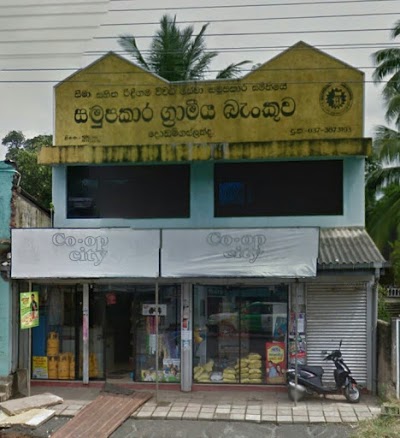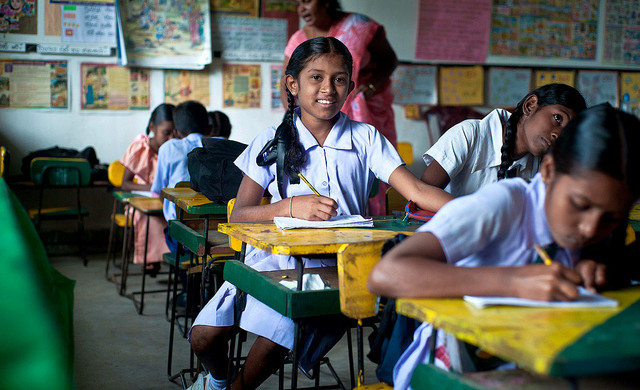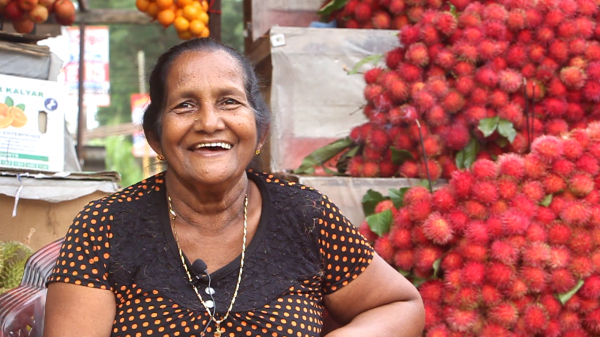
As a nation, Sri Lanka boasts impressives rates for print literacy. As of 2018, the adult literacy rate is at 92%, making Sri Lanka the most literate country in South Asia. Considering this, it might be surprising to discover that Sri Lanka’s financial literacy rate is only 35%. Although this is still the highest out of South Asia, it stands to be the largest gap between print literacy and financial literacy in the region.
High print literacy rates do not necessarily have to correlate to financial savviness, but the ability to read and write does provide the basis on which one can access and use financial services. Using cheque books, reviewing bank statements, and even using an ATM machine all require basic levels of literacy: so why is the gap between the two so high?
Access
Financial literacy can be defined as the understanding of how money works. This includes how to generate, invest, spend, and save money in ways that ensures a person’s financial stability. It also refers to having the skills and ability to use financial resources—such as banks—to make these decisions. On an individual level, this means being able to balance a cheque book, comprehend personal taxes, and understand how to budget in order to make wise money decisions with money.
In countries like India, there is an astounding lack of access to banks in rural areas, and much of the country’s economic exchanges happen in cash. This is not the case in Sri Lanka.
“Most Sri Lankans are able to access banks easily, even in more rural areas. This makes our low financial literacy level even more shocking,” explained Ravi Rathnasabapathy, a research fellow at Advocata. “Financial access is not the problem. I think our low financial literacy levels have more to do with a poor financial education.”

Education
Geetha Narayanan was 21 years old when she began working full time as a maid for a wealthy family in Colombo. At the time, she was earning Rs. 25,000 per month, most of which she sent back to her family in Arukwatta, a small town in Sri Lanka’s Central Province. Being the oldest of three sisters, she felt a duty to support her family, despite being aware that a large chunk of her money was being used by her father to buy alcohol. For years, Narayanan never saved any of her earning, as she was tied down by social realities that did not allow her to do so.
“At that time I was young, and unmarried, so I was expected to send my money back home”, she said. “Now that I have two young children I realise how important it is to think about saving money for the future.”
Now, at 36, Narayanan still finds it difficult to save money on her salary, but it is something she is keen on doing. She has learned to budget in a way that enables her to cover all her expenses without borrowing; an accomplishment for which she is proud. She had never learned these skills in school, but picked them up much later in life, mainly through the help of her employers.
“The management of personal finances is something that is expected to be taught at home”, said Priyanthi Perera, Chief Operations Manager at Commercial Bank. “Most Sri Lankan households are not financially savvy, unless they are involved in business, which require that.”
What ends up happening as a result is that those who are already in affluent sectors of society remain affluent, and those who are not, don’t have access to the financial knowledge that could enable upward mobility.
Perera states that being financially apt requires not only an education of how money works, but also a shift in mindset.
“Many Sri Lankans — in all sectors of society — think in the short term, and this reflects on how they spend their money”, said Perera. “This also makes them very susceptible to scams. There are so many schemes that promise you things like a BMW for Rs. 88,000, and it’s shocking how many people will buy into it, without question.”

Empowerment
A study conducted by the University of Kelaniya in 2016, revealed that in rural communities, men were shown to have higher levels of financial literacy than women.
According to Aneesha Pieris— current president of the Zonta Club IV, which oversees workshops aimed at empowering women—improving financial literacy rates among women in Sri Lanka is crucial to combating gender inequality.
“Women in rural areas don’t have power of managing the money in a household, it’s usually the husband who is the breadwinner. I think it is really important that this issue is addressed”, she said. “Financial literacy enables women to become more independent, and women who are able to control and manage their money are also more likely to leave situations of domestic abuse. This is huge, because these situations are unfortunately very common in our society.”
Despite these discrepancies, men in rural areas also displayed alarmingly low rates of financial literacy.
“In many rural areas, people spend all of their daily earnings within the same day. You have fisherman whose families go without food on days they don’t make a catch,” says Pieris. “If they make extra money one day, they could put it aside for a day when the yields are low, but people don’t think that far ahead, so they fall into debt.”
According to a survey conducted by Central Bank, the average debt of a Sri Lankan family was as high as Rs. 194,000 in 2016. This problem is even more severe in the North, where people were cut off from the rest of the island during the civil war.
In response to these revelations, the Central Bank conducted educational programs for low-income communities in the North, teaching them financial planning and better borrowing techniques.
Although some initiatives have been made by banks and other private organizations, there is still a need for more financial literacy programs in Sri Lanka. Pieris believes that this should happen not only on a government level, but on an NGO level as well.
“It needs to be on everyone’s agenda, especially if you are an organization that is trying to combat poverty,” says Pieris. “There are many NGOs that are focused on helping people learn skills that can make them money, but this needs to be accompanied with classes on how to manage that money as well.”







